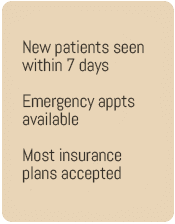Coping With Cancer Through Stress Management
A cancer diagnosis can be one of the most difficult experiences a person can go through. It can be a time of great uncertainty and fear because of how it will impact your life. In this blog, we’ll explore coping with cancer by managing stress and anxiety.
Understanding stress and anxiety
When coping with a cancer diagnosis, it is important to understand how stress and anxiety affect the body.
Stress is the body’s natural response to a perceived threat or challenge. It can be triggered by events we feel we cannot control. It causes feelings of emotional or physical tension.
Anxiety is a feeling of unease or worry. It is expected to feel anxious after a cancer diagnosis. You may fear the treatment and its side effects or have concerns about how it will affect your life. People in remission often feel anxiety during follow-up visits because they fear their cancer may have returned.
Both stress and anxiety can have a significant impact on a person’s mental and physical health. People with cancer can have varying degrees of stress and anxiety at different times during their diagnosis and treatment.
Stress management for cancer patients
Cancer patients may experience stress and anxiety:
- Before a cancer screening
- While waiting for test results
- Learning of a cancer diagnosis
- During cancer treatment
- After cancer is in remission
Understanding how cancer and stress management relate can help you find better coping methods. A cancer diagnosis is a journey, so taking things one step at a time is important as you navigate this difficult time. Let’s take a closer look at ways to manage stress and anxiety for your mental and physical health.
Nurturing your mental health
Educate yourself about your diagnosis and treatment options with trusted sources, like your physician or oncologist. Having information about your cancer diagnosis can help reduce uncertainty and fear. However, too much information can be overwhelming, thereby increasing anxiety. Avoid searching for information online from unreliable websites or message boards.
Reach out to a mental health professional for emotional support, guidance and coping strategies tailored to your needs. A counselor or psychologist can offer a safe and supportive environment where you learn practical information about managing the disease. They also serve as a qualified sounding board to express your feelings and fears.
Join a cancer support group to connect with others who understand what you’re going through. It helps to know that you’re not alone in the journey and you have others with whom to share your feelings. Find out about cancer support groups in the Triangle.
Stay connected to loved ones so that you don’t feel isolated. Close friends and family can provide emotional support and help you maintain a sense of normalcy during treatment. Make time to connect with family and friends even if it is just through a text message or email.
Keep a positive outlook. While it may be difficult sometimes, your attitude can affect your stress and anxiety levels. Try to focus on the things you can control and the small victories you accomplish. Ask your family and friends to maintain a positive attitude to help keep you motivated as you are coping with cancer.
Maximizing your physical health
Self-care is essential for managing stress and anxiety while dealing with cancer. If you feel begin to feel overwhelmed with tasks at work or in your home, take a break. Ask your family members to help with household chores or errands to reduce your stress level.
Find a routine that works for you. For some, having a routine helps reduce the worry and uncertainty of a cancer diagnosis. If you can, continue to work and maintain your hobbies so you can feel a sense of normalcy and purpose.
Prepare for physical changes in your body. Cancer treatment can change how your body looks. It can be difficult to focus on your appearance when you are ill, but it can make you feel better. Learn strategies for addressing hair loss and ways to care for your skin, hair and nails.
Maintain a healthy diet of whole grains, lean meats, vegetables and fruits to ensure you are getting enough vitamins. Some people turn to junk food when they feel stressed or anxious, but processed foods can make it worse. If you have difficulty with certain foods, talk to your doctor about the best ways to get the nutrition you need.
Physical activity releases endorphins, the hormones that increase good feelings and reduce pain and discomfort. Talk to your doctor about what types of exercises are safe for you. Walking, yoga or swimming may be appropriate activities to keep your body moving and give you a feeling of accomplishment.
Mindfulness and relaxation exercises can help you reduce stress and anxiety when coping with cancer. Try meditation or deep breathing exercises to help you stay grounded and centered during a difficult time.
Remember to ask for help when you need it as you navigate this difficult time. With the right support and coping strategies, you can manage your stress and anxiety and emerge stronger and more resilient.
Cancer diagnosis and treatment in the Triangle
At Personalized Hematology-Oncology, we designed our practice and our facility to be different from large hospitals and oncology centers. We understand that undergoing cancer treatment is an emotionally and physically draining process. We are committed to providing quality medical care to our patients, helping them cope with the many physical and emotional aspects that come along with cancer. Contact us today to schedule an appointment.





